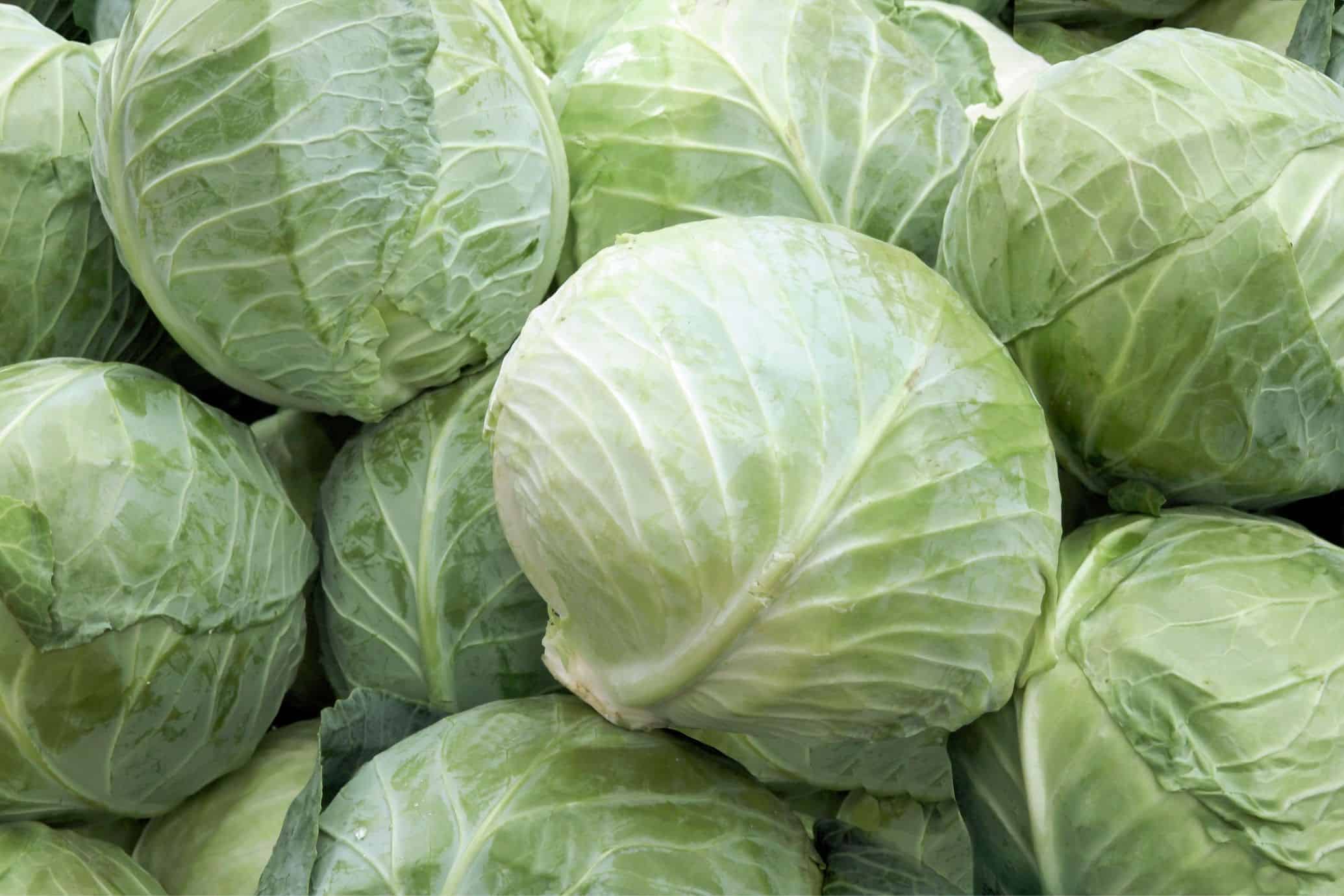Home>Articles>How Long Does Asparagus Last In The Refrigerator


Articles
How Long Does Asparagus Last In The Refrigerator
Modified: August 16, 2024
Learn about storing asparagus in the refrigerator, including how long it lasts and tips for maintaining its freshness. Discover more helpful articles on food storage.
(Many of the links in this article redirect to a specific reviewed product. Your purchase of these products through affiliate links helps to generate commission for Storables.com, at no extra cost. Learn more)
Introduction
Asparagus is a delicious and nutritious vegetable that can be enjoyed in various dishes, from salads to stir-fries. However, like any perishable food, it has a limited shelf life. If you’re wondering how long asparagus lasts in the refrigerator, this article will provide you with all the information you need to keep it fresh for as long as possible.
Asparagus is known for its tender and crunchy texture, and its flavor profile can range from mild to slightly bitter. It is packed with essential vitamins and minerals, including vitamins A, C, E, and K, as well as folate, potassium, and fiber. This makes asparagus a popular choice for those looking to maintain a healthy diet.
However, while asparagus is widely available and can be found in most grocery stores, it’s important to know how to properly store it to maximize its shelf life. Incorrect storage can lead to premature spoilage, resulting in a loss of flavor and nutrients.
Factors such as temperature, humidity, and handling can significantly affect the longevity of asparagus in the refrigerator. Understanding these factors will help you make informed decisions when it comes to storing and consuming this versatile vegetable.
So, how long does asparagus last in the refrigerator? The answer depends on several key factors that we will explore in detail in the following sections. By following the tips and guidelines outlined in this article, you can ensure that your asparagus stays fresh and flavorful for an extended period, allowing you to enjoy this green delight whenever you desire.
Key Takeaways:
- Proper storage, including trimming, wrapping, and refrigerating in the crisper drawer, is essential to extend the shelf life of asparagus and maintain its flavor and texture.
- Recognizing signs of spoilage, such as foul odor, discoloration, slime, and wilted appearance, is crucial for ensuring food safety and avoiding potential health risks.
Read more: How Long Does A Refrigerator Last
Factors Affecting the Shelf Life of Asparagus In The Refrigerator
The shelf life of asparagus in the refrigerator can vary depending on several factors. Understanding these factors is crucial in prolonging its freshness. Let’s take a closer look at each one:
- Quality at Purchase: The quality of asparagus at the time of purchase plays a significant role in determining its shelf life. Look for firm stalks with a vibrant green color and tightly closed tips. Avoid any signs of wilting or sliminess.
- Temperature: Asparagus is a cold-loving vegetable and is best stored at temperatures between 32°F (0°C) and 36°F (2°C). The refrigerator’s temperature should be set accordingly to maintain the freshness of the asparagus. Extreme temperatures, either too cold or too warm, can accelerate spoilage.
- Humidity: Asparagus requires a certain level of humidity to stay fresh. Too much humidity can lead to mold growth, while low humidity can cause the asparagus to wilt. It’s advisable to store asparagus in the refrigerator’s crisper drawer, which helps maintain the ideal humidity level.
- Moisture Content: Excess moisture on asparagus can accelerate spoilage. Ensure that the asparagus is dry before storing it in the refrigerator. You can blot any excess moisture with a paper towel or a clean cloth.
- Handling: Proper handling of asparagus can significantly impact its shelf life. Rough handling during transportation and storage can cause bruising and damage to the vegetable. It’s important to handle asparagus with care, placing it gently in the refrigerator to prevent any unnecessary damage.
- Airflow: Adequate airflow is essential in preserving the freshness of asparagus. Avoid overcrowding the refrigerator’s crisper drawer, as it can restrict airflow and accelerate spoilage. It’s recommended to loosely wrap the asparagus in a damp paper towel or store it in a perforated plastic bag to allow for proper airflow.
By taking these factors into consideration, you can significantly extend the shelf life of your asparagus and ensure that it stays fresh and flavorful for a longer period. In the next section, we will discuss the proper storage methods to maintain the quality of asparagus in the refrigerator.
Proper Storage of Asparagus
Proper storage is key to maintaining the quality and freshness of asparagus in the refrigerator. By following these guidelines, you can maximize the shelf life of this delightful vegetable:
- Trim the Ends: Before storing asparagus, it’s important to trim the tough ends. Simply hold each spear towards the bottom and bend it until it naturally snaps. This method helps remove the woody portion, ensuring that you’re left with the most tender and edible part of the asparagus.
- Wrap in Damp Paper Towel: To prevent moisture loss, wrap the trimmed asparagus in a damp paper towel. This helps maintain the required level of humidity and prevents the asparagus from drying out.
- Use Perforated Plastic Bag: Another option is to store the asparagus in a perforated plastic bag. The perforations allow for proper airflow, preventing the asparagus from becoming damp and spoiling quickly. Alternatively, you can punch a few holes in a regular plastic bag to achieve the same effect.
- Store in the Crisper Drawer: The crisper drawer in the refrigerator is designed to maintain the ideal humidity level for storing fruits and vegetables. Place the wrapped or bagged asparagus in the crisper drawer to ensure it stays fresh and crisp for a longer time.
- Avoid Washing Before Storage: It’s best to avoid washing asparagus before storing it in the refrigerator. The excess moisture can accelerate spoilage. Instead, wash the asparagus just before using it by rinsing it under cold water to remove any dirt or debris.
By following these storage guidelines, you can extend the shelf life of asparagus and maintain its flavor and texture. However, it’s important to note that even with proper storage, asparagus is best consumed within a few days to enjoy it at its peak freshness.
In the next section, we will explore the signs that indicate asparagus has spoiled and should be discarded.
To keep asparagus fresh in the refrigerator, trim the ends and place the stalks upright in a glass of water, then cover with a plastic bag and store in the fridge for up to 1 week.
Signs of Spoiled Asparagus
While proper storage can help extend the shelf life of asparagus, it’s important to be aware of the signs of spoilage. Here are some common indicators that your asparagus has gone bad:
- Foul Odor: One of the easiest ways to determine if asparagus is spoiled is by smelling it. Fresh asparagus has a mild, earthy scent. If you detect a strong or unpleasant odor resembling ammonia or rotten vegetables, it’s a clear indication that the asparagus has spoiled.
- Discoloration: Fresh asparagus has a vibrant green color. If you notice any yellowing, browning, or blackening of the stalks, it’s a sign of spoilage. Discoloration indicates that the asparagus has begun to break down and is no longer suitable for consumption.
- Slime and Mushiness: Asparagus should be crisp and firm. If you notice a slimy or mushy texture when handling the stalks, it’s a clear sign that they have deteriorated. The sliminess is a result of bacterial growth, and consuming spoiled asparagus can lead to foodborne illnesses.
- Wrinkled or Wilted Appearance: Fresh asparagus should have a taut and upright appearance. If the stalks appear wrinkled, shriveled, or wilted, it indicates loss of moisture and deterioration. Such asparagus is past its prime and should not be consumed.
If you come across any of these signs, it’s recommended to discard the spoiled asparagus immediately. Consuming spoiled food can lead to digestive issues and food poisoning. It’s always better to err on the side of caution when it comes to food safety.
Now that you know the signs of spoiled asparagus, let’s move on to the next section where we’ll provide some tips for extending the shelf life of asparagus in the refrigerator.
Tips for Extending the Shelf Life of Asparagus
To keep your asparagus fresh and flavorful for a longer period, here are some valuable tips that you can follow:
- Buy Fresh Asparagus: Choose fresh asparagus with firm stalks and tightly closed tips. Avoid wilted or slimy ones. The quality of asparagus at the time of purchase greatly impacts its shelf life.
- Store Properly: Trim the tough ends of the asparagus spears and wrap them in a damp paper towel or store them in a perforated plastic bag. Place them in the crisper drawer of your refrigerator to maintain the ideal temperature and humidity.
- Keep Dry: Make sure the asparagus is dry before storing it. Excess moisture can lead to spoilage. You can blot any moisture with a paper towel before wrapping or bagging it.
- Don’t Wash Before Storage: Avoid washing asparagus before storing it in the refrigerator. Moisture can accelerate spoilage. Instead, wash it just before using it by rinsing it under cold water.
- Use it Soon: While proper storage can help prolong the shelf life of asparagus, it’s best to use it within a few days for optimal freshness. Asparagus loses its flavor and texture over time, so try to enjoy it as soon as possible.
- Properly Wrap Leftovers: If you have any leftover cooked asparagus, make sure to wrap it tightly in plastic wrap or place it in an airtight container before refrigerating. This helps prevent it from drying out and losing its flavor.
- Consider Freezing: If you have a surplus of asparagus and want to extend its shelf life further, consider freezing it. Blanch the asparagus spears by boiling them briefly, and then transfer them to an ice bath to stop the cooking process. Once cooled, pat them dry and place them in freezer-safe bags or containers. Frozen asparagus can stay good for up to 8-12 months.
By following these tips, you can extend the shelf life of your asparagus and enjoy it for longer periods. Remember, proper storage and handling are essential for maintaining the freshness and quality of this delicious vegetable.
Now that you have a better understanding of how to maximize the shelf life of asparagus, let’s wrap up the article with some closing thoughts.
Conclusion
Asparagus is a versatile and nutritious vegetable that adds a delightful touch to many dishes. By understanding the factors that affect its shelf life and following proper storage techniques, you can ensure that your asparagus stays fresh and flavorful for as long as possible.
Factors such as temperature, humidity, proper handling, and airflow play a crucial role in maintaining the freshness of asparagus. By storing asparagus in the refrigerator’s crisper drawer, trimming the ends, and wrapping it in a damp paper towel or perforated plastic bag, you can create an optimal storage environment.
Recognizing the signs of spoiled asparagus, such as foul odor, discoloration, slime, and wilted appearance, is essential for food safety. If you notice any of these signs, it’s best to discard the asparagus to avoid any potential health risks.
To extend the shelf life of asparagus, consider buying fresh stalks, keeping them dry, and using the asparagus within a few days for optimal freshness. Properly wrapping leftovers and even freezing excess asparagus can help preserve its quality for longer periods.
Remember, while asparagus is a delicious vegetable, it’s best consumed when at its peak freshness. So, make sure to enjoy your asparagus in a timely manner, incorporating it into your favorite recipes for a nutritious and flavorful meal.
By implementing proper storage techniques and being mindful of the factors that affect its shelf life, you can maximize the enjoyment of this green delight and reduce food waste. So go ahead, savor the freshness of asparagus and create delectable dishes that highlight its unique flavor and nutritional benefits.
Frequently Asked Questions about How Long Does Asparagus Last In The Refrigerator
Was this page helpful?
At Storables.com, we guarantee accurate and reliable information. Our content, validated by Expert Board Contributors, is crafted following stringent Editorial Policies. We're committed to providing you with well-researched, expert-backed insights for all your informational needs.















0 thoughts on “How Long Does Asparagus Last In The Refrigerator”